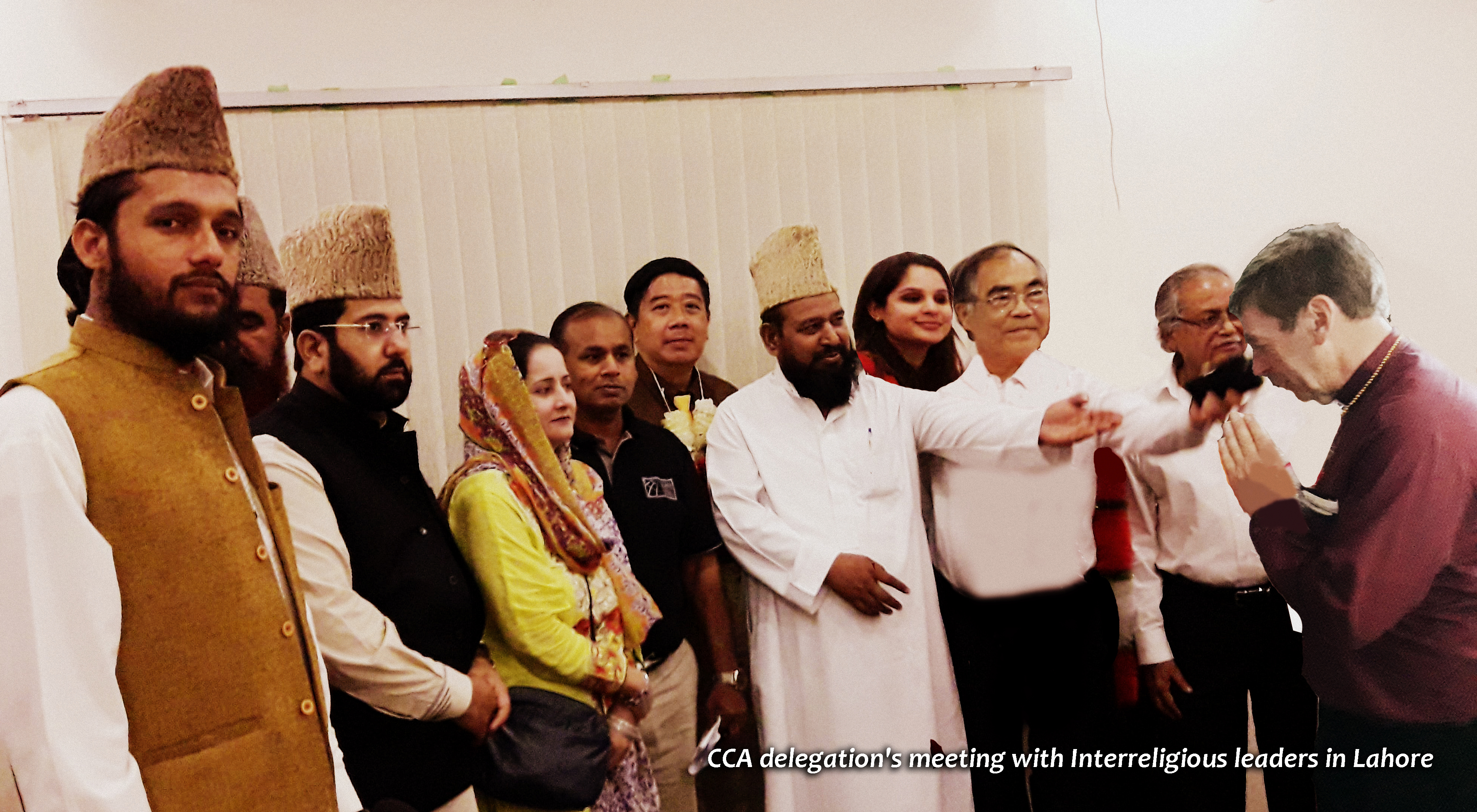CCA’s solidarity team observes plight of Pakistani Christians

In light of the escalating violent attacks and violence orchestrated against Christian minorities in Pakistan, the Christian Conference of Asia (CCA) organized a Pastoral Solidarity Visit to Pakistan from 3 to 6 October 2016.
The three-day visit by a three-member CCA team in support of the persecuted and suffering minority communities was headed by Bishop Philip Huggins, a member of the program committee of the CCA from the Anglican Church in Australia, who is also the President of the National Council of Churches (NCC) Australia. He observed that, “Christians in Pakistan are not only the constant targets of militancy, but also victims of systematic violations of human rights.”
The other members of the solidarity team were Dr. Victor Hsu, a member of the CCA program committee and Associate General Secretary of the Presbyterian Church of Taiwan, and Dr. Rey Ty, Coordinator of CCA’s program cluster, Building Peace and Moving Beyond Conflicts.
Members of the team reported that they were shocked to see the vulnerability of the churches in Pakistan to terrorist attacks; flimsy gates and unprotected surroundings of congregations marked the reality of many places that the team visited.
Following the suicide bombing at Lahore's Gulshan-e-Iqbal Park in March 2016 that killed at least 72 people, including a large number of Christian families celebrating Easter, some Christian schools have been obligated to improve their security by Government regulations.
Apart from the frequent spate of church bombings by extremist groups operating in the name of a certain religion in the country, Pakistani Christians are continuously suffering due to the misuse of the country’s blasphemy law, which has often resulted in death penalties and mob-instigated violence against religious minorities.
Ecumenical leaders in the country told the members of the CCA solidarity team that in the most recent cases of blasphemy, two Christian men were sentenced to death by an anti-terrorism court in June 2016. In November 2014, a Christian couple was beaten and burnt alive by an enraged mob. In March 2013, 125 Christian houses were torched over accusations of blasphemy. The church leaders appealed that, “we request your prayers for the blasphemy accused woman, Asia Bibi, who was sentenced to death and her appeal against the conviction is still pending a final decision.”
The case will be heard by three judges in the Supreme Court on 13 October, 2016. According to lawyers of the legal aid assistance group appearing on behalf of blasphemy-accused victims, “one aspect in Asia Bibi's case is the five-day gap between the day the alleged act of blasphemy occurred and the day the incident was reported to the police, this contradicts one of the core principles of criminal justice (the timely reporting of an incident) and supports a conspiracy theory.”
It is widely known that most blasphemy cases in Pakistan are merely improper applications of the blasphemy law, often used for score-settling, petty property disputes or to exact revenge, and Asia Bibi’s case is such an example. The Church leaders also told the CCA team that, “Pakistani Christians are victims of forced conversions.”
“At least 700 cases of Christian women being forcibly converted to Islam were reported in the country last year,” according to a Lahore-based human rights and legal aid assistance group, CLAAS. The plight of Pakistani Christians is further exacerbated by the lack of due process of law.
Church leaders in Pakistan echoed their concern and anguish that the anti-terrorism laws of Pakistan were hailed as an opportunity to curtail militancy and extremism in the country, but instead are being used to arrest and detain innocent Christians who are protesting against religious persecutions. They demanded a review of the use of the recently adopted anti-terrorism laws within the Terrorism Act.
The CCA team met with leaders of the National Council of Churches (NCC) Pakistan, the Church of Pakistan and the Presbyterian Church of Pakistan and discussed the alarming situation of the persecuted Christian minority community. The team also visited and spoke with communities affected by violence and terrorism.
Furthermore, the team held meetings with inter-faith religious leaders of the Wahhabi, Shi'ite, Sunni Muslim sects, and Sufi scholars together with church leaders, stressing upon the importance of religious co-operation rather than competition in Pakistan.
“In these meetings, we discussed how both Islam and Christianity understand themselves to be religions of peace,” said Bishop Philip Huggins.
He added, “In a world full of tears, wouldn’t it be wonderful if Muslims and Christians in Pakistan could model a beautiful and illuminating religious co-operation? The world could do with a little more hope.”
In response to the debriefing at the CCA upon return from Pakistan by Dr. Rey Ty, CCA General Secretary Dr. Mathews George Chunakara stated that, “The CCA is committed to accompanying and supporting Pakistani Christians in their efforts to advocate for the repeal of the blasphemy law, which is being misused by religious extremists and vested interest groups in Pakistan. The injustice of the blasphemy law is something that needs to be urgently addressed by the Pakistani government.”
“The CCA is committed to supporting the advocacy efforts highlighting the plight of religious minorities at the 28th session of the Universal Periodic Review (UPR) of the UN Human Rights Council in 2017,” added the CCA General Secretary.










